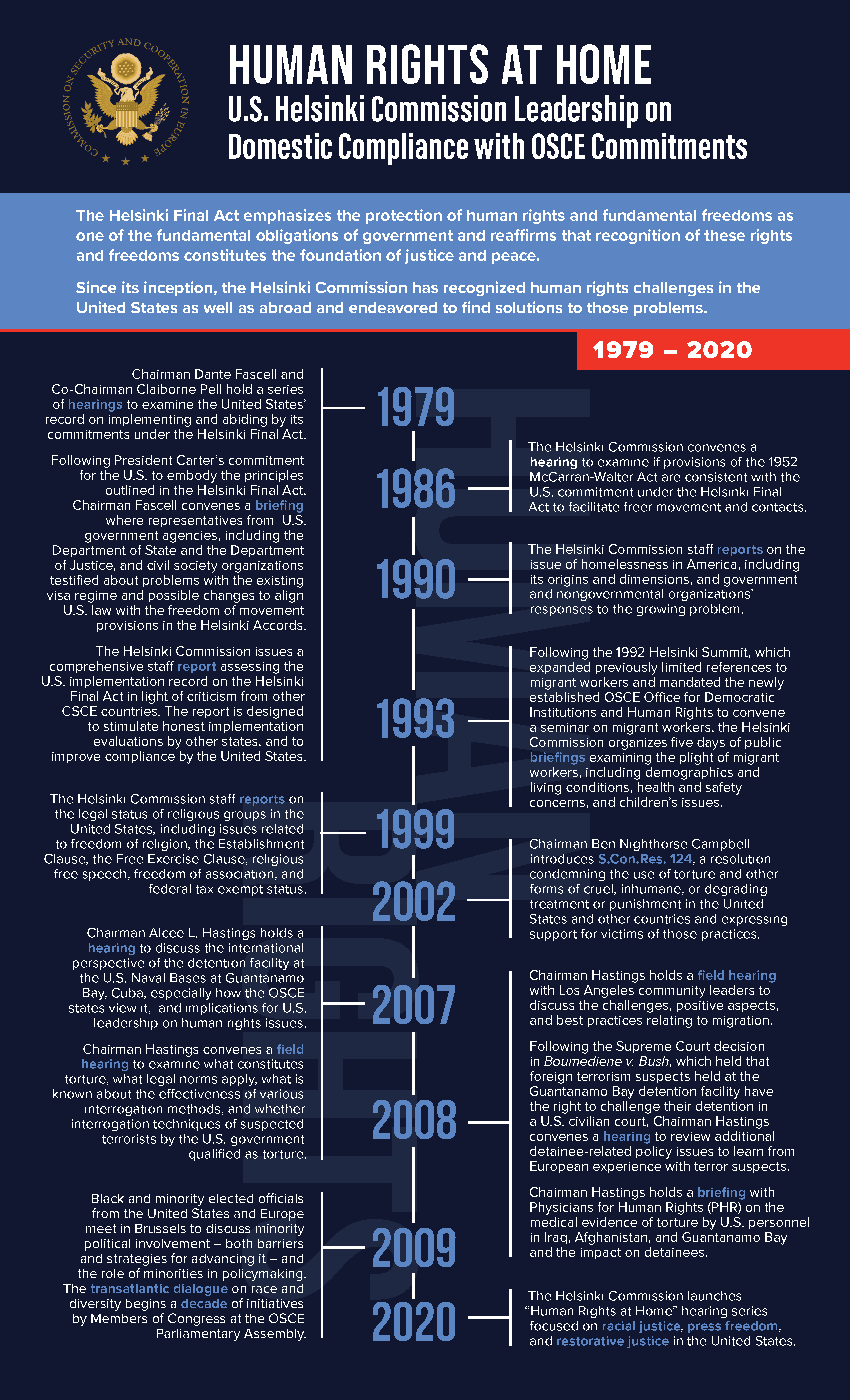By signing the Helsinki Final Act, the United States committed to respecting human rights and fundamental freedoms, even under the most challenging circumstances. However, like other OSCE participating States, the United States sometimes struggles to implement humane migration policies, ensure transparency in political leadership, safeguard press freedom, and counter hate and discrimination.
The Helsinki Commission strives to ensure that U.S. practices remain consistent with international standards and that the United States remains responsive to legitimate concerns raised in the OSCE context, including about the conduct of elections; the death penalty, use of force by law enforcement, and other criminal justice practices; and the status and treatment of detainees at Guantanamo Bay and elsewhere.
In 1979, the Helsinki Commission hosted a series of hearings to examine whether the United States was meeting its commitments under the Helsinki Final Act. It was the first time that a participating State reviewed its own record in such a manner, considering criticism by other signatories and domestic monitoring groups.
In the 2000s, commissioners addressed the toll that the detention center at Guantanamo Bay, along with other practices undertaken as part of the “War on Terror,” was taking on U.S. leadership on human rights. The commission also has organized events examining ethnic profiling in Europe and the U.S. and highlighting U.S. government reform efforts through “constitutional policing” initiatives.
Commissioners—especially those who have observed elections abroad—have also been supportive of OSCE election observation missions to the United States. Engaging in such candid self-assessment allows the United States to legitimately demand a similar level of reflection from other OSCE participating States.
In addition, through hearings, briefings, and other public awareness activities, the commission increases U.S. citizen engagement with international institutions like the OSCE and deepens American relationships with civil society organizations throughout the region.

